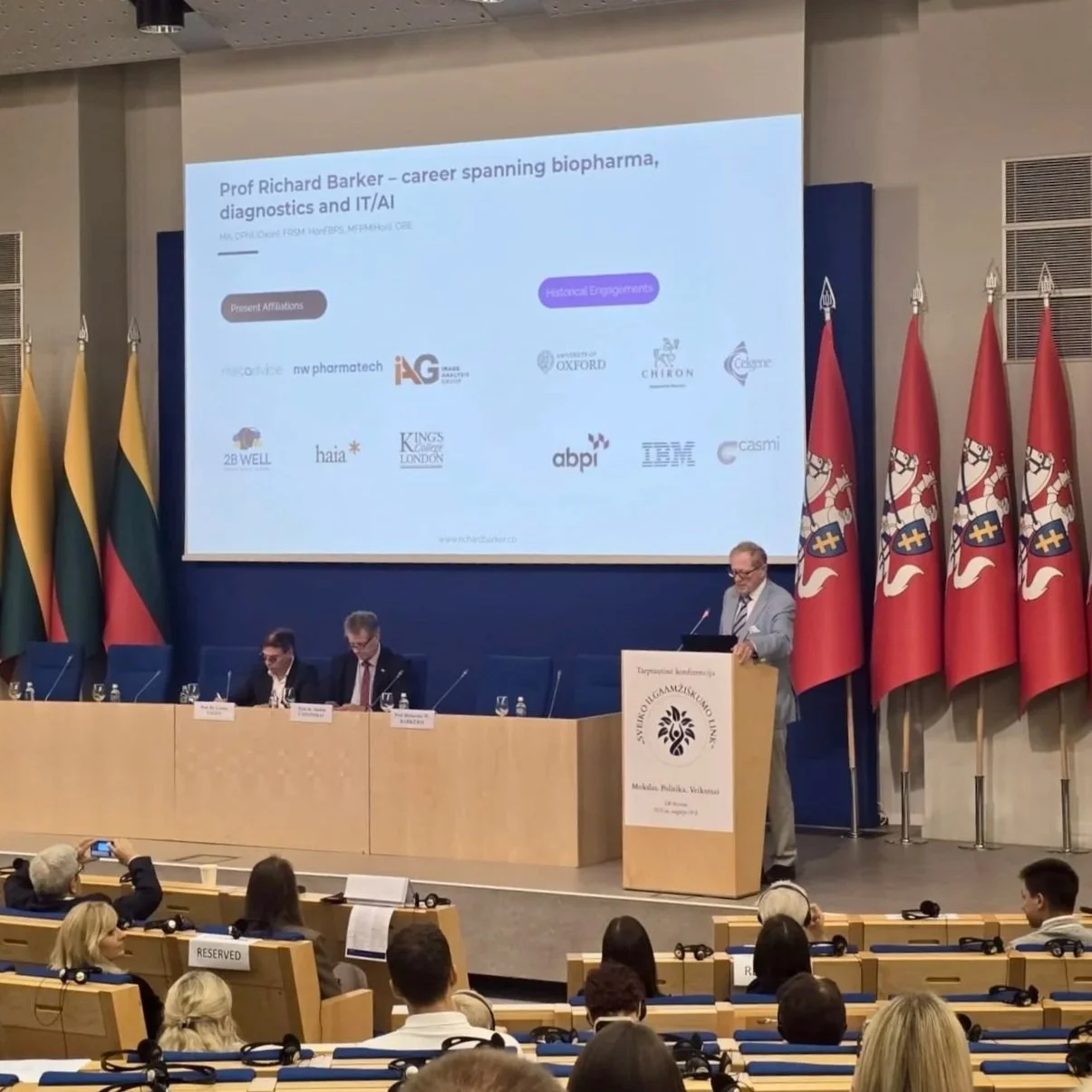Lithuania – from Healthspan Laggard to Leader?
Image: Richard Barker (Speaking at the Lithuanian Parliament on Healthy Longevity)
Politicians and senior doctors in Lithuania are acutely aware of their country’s current position on lifespan and healthspan compared to other OECD nations. In response, they sponsored a comprehensive one-day conference at the parliament, entitled “Towards Healthy Longevity.” The event was launched by the Speaker of the Seimas (as the parliament is known) and featured the Ministers of Health and Education. Based on the quality and enthusiasm of the discussions, I came away confident that Lithuania has the potential to move from laggard to leader in the race to achieve healthy longevity across European populations.
The scope of the day’s discussions was broad. It began with newborn screening using various ‘omics’ tests to detect hereditary diseases—set against the worrying backdrop of a declining national birth rate. The earlier we know about disease predisposition, the sooner we can act to reduce its probability. The day when most newborns in developed countries are genomically sequenced is not far away, offering lifelong healthcare benefits once people can be reassured about data security. This has already begun in the UK, with the sequencing of 20,000 babies and some inherited diseases being identified early.
At the other end of the spectrum, we heard about attitudes and actions toward adults with disabilities from the chairman of the “Disabled – Not Half a Person” Association, who spoke from his wheelchair, drawing parallels between combating disability and reducing the impact of ageing.
The next topic was modulating our biological clocks. Epigenetic clocks, pioneered by Steve Horvath (whom we met in Vilnius), give us insights into how our genes are expressed in different tissues. Our diet, lifestyle—and even our emotions—modify our epigenetic status throughout our lifespan. The microbiome is particularly influential. Biological clocks are increasingly important, not only to assess our individual health status but also to track the impact of interventions. Age may be “just a number,” but—biologically—seeing that number decrease as we take better care of ourselves will be a powerful motivator.
Lithuania also practices a distinctive form of medicine targeted at healthy longevity called endobiogenics. Based on blood test inputs, practitioners work with patients to reduce stress through a broad range of tools—from meditation and plant medicine to art therapy—modifying neuroendocrine levels and impacting telomere length, two additional measures of healthspan progress.
Another notable Lithuanian programme focuses on the prevention of cardiac disease, combating the typical high blood pressure and lipid levels found in much of the population, which combine with chronic inflammation to cause atherosclerosis—especially in those with elevated Lipoprotein(a). As we know, walking 7,000–10,000 steps a day and eating a Mediterranean diet (especially— as one speaker pointed out—“along with our loved ones”) are highly effective in reducing these risks. And we heard that finding your ikigai—a real purpose in life and rejoicing in it—is a therapy that costs nothing and affects everything.
Jade Health (Joint Action addressing DEmentia and HEALTH) is another Lithuanian initiative aimed at detecting and arresting cognitive decline. Supported by a €5-million EU grant, Vilnius University is a leading member of a 39-partner consortium across 17 countries. The goal is to raise awareness of preventive measures, healthy lifestyles, and long-term strategies to reduce the burden of dementia.
Of course, there is lively interest not only in living healthier longer but also in looking younger longer. Regenerative surgery is becoming more sophisticated, from cosmetic procedures to microscopic injections of regenerative preparations under the skin. This is an area of particular interest in the Baltics, as noted by the President of the Lithuanian Society of Plastic and Reconstructive Surgery.
Finally, two lively women from the University of the Third Age—also known as the Academy of Healthy Ageing—were living proof that, well into our eighties, we can be role models and inspire others to do the same. Something to strive for.
Lithuania clearly has a growing commitment to advancing healthspan at both academic and policy levels. This momentum should, in time, help close the gap between its current reality and its national goals. I’ll be watching with interest.
